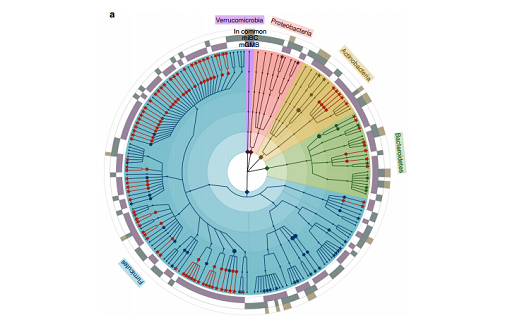In 7th Jan 2020, the Nature Communication published a mouse gut microbial biobank constructed by scientists from Institute of Microbiology, Chinese Academy of Science. The gut microbe-related study has become the frontier and hotspot of life science and health research field in recent years. Increasingly more research evidences have shown that the gut microbes are closely related to health and diseases of hosts and will play a very important role in the future human health management and the development of the medical industry. The construction of gut microbial resource biobank is the basis for the development and utilization of intestinal microorganisms, also the key to understanding the host-microbe interaction mechanism.
This work reported the construction of a mouse gut microbial biobank (mGMB) that contains 126 species, represented by 244 strains that have been deposited in the China General Microorganism Culture Collection. The authors sequence and phenotypically characterize 77 potential new species and propose their nomenclatures. The genomes of the 126 species in the mGMB cover 52% of the metagenomic nonredundant gene catalog (sequence identity ≥60%) and represent 93–95% of the KEGG-Orthology-annotated functions of the sampled mouse GMs. This work enriches the repository of cultivated cultured mouse gut bacteria by increasing the number of species from 76 to 180 and the genera from 48 to 110, and these bacterial strains are available for causative researches on the validation of GM function and study of host-GM interactions. In a previous work, the author’s team have verified experimentally that a member of the mGMB, the Parabacteroides distasonis, could alleviates obesity and metabolic dysfunctions via production of succinate and secondary bile acids (Wang et al. 2019. Cell Rep.).
This work was completed by Dr. Liu Chang and the other co-authors from the Institute of Microbiology, Chinese Academy of Sciences. Prof. Shuang-Jiang Liu and Hongwei Liu are the corresponding authors. This work takes more than two year and was financially supported by the Key Research Program of the Chinese Academy of Sciences.
Paper link:https://www.nature.com/articles/s41467-019-13836-5


